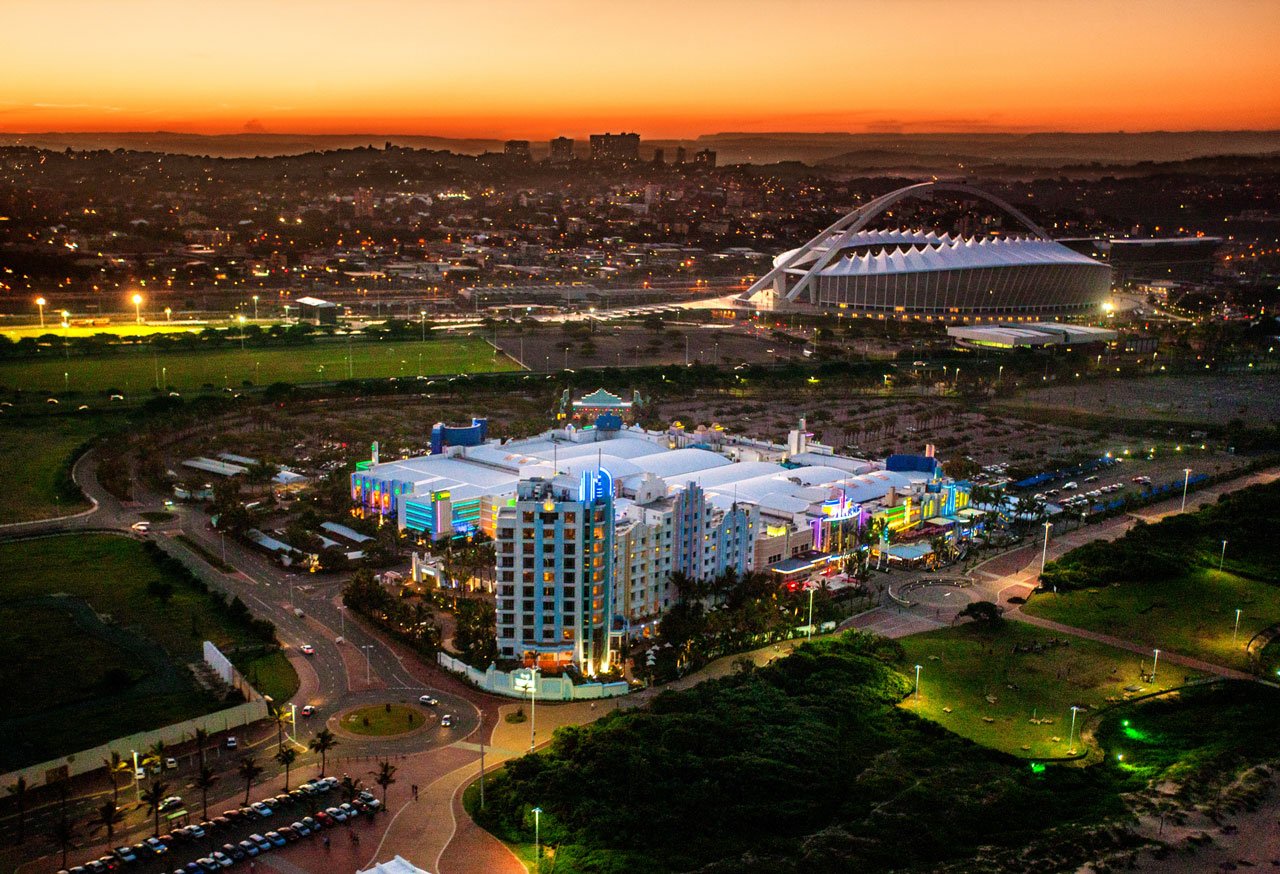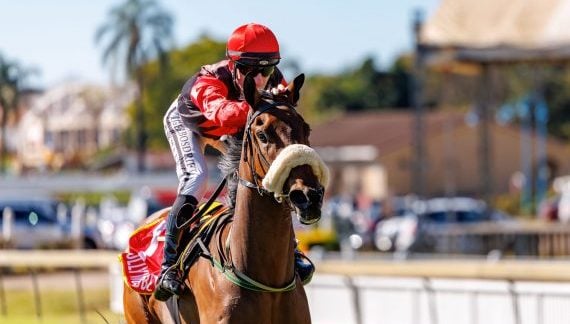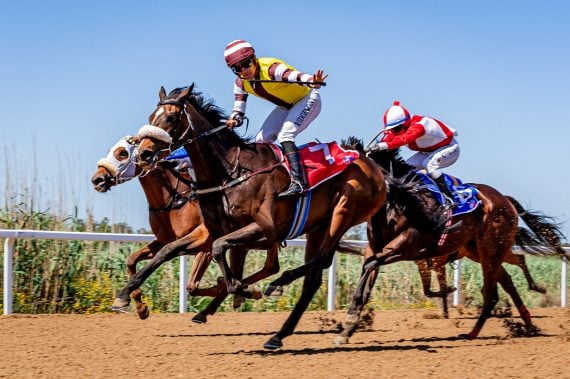Of all the industries that are crying out for government control and “nationalization” horseracing in South Africa must top the list.
Who could ever have thought that horseracing would be reduced to such a sorry state that Julius Malema could be mooted as a possible saviour of the sport and industry.
The unfortunate truth is, that ten years down the line, who in horseracing other than Phumelela shareholders and certain privileged well-paid officials, could argue that corporatization has not been an unmitigated disaster.
Nationalization may now be the only alternative to break the shareholders’ power and pernicious influence and control over horseracing.
Before the advent of Phumelela the sport of kings in South Africa flourished because it was owned by collectives and conducted in a manner which furthered the interests of the racehorse and the role-players who invested their time and money in it.
There was a healthy symbiosis between the sport and business of horseracing and all its various controlling bodies were democratically elected. The persons holding office in them, all served in honorary capacities, for the good of the sport, the benefit of their members and the status the various offices bestowed on them.
Most importantly, the persons elected to serve on those bodies were voted in on a one-member present, one-vote basis. There were no proxies and only members who were concerned enough to attend meetings, were able to vote.
The electoral process could, therefore, not be manipulated by individuals capable of garnering large blocks of proxy votes in order to ensure election for themselves and their minions.
The result was that all the after-tax income generated from betting and other ancillary activities was used to provide stakes and to improve and develop infrastructure.
This infrastructure was extremely valuable and included TAB (TVL), TAB (OFS), the Randjesfontein training centre and Turffontein, Gosforth Park, Newmarket, Vaal and Bloemfontein racecourses.
All were taken over directly by Phumelela except the Newmarket racecourse and the Randjesfontein training centre which remained vested in the Racing Association.
Phumelela had an option to acquire the Newmarket racecourse .
Phumelela also took over Eastern Cape and Northern Cape horseracing which included Fairview, Arlington and Flamingo Park racecourses and their respective tote operations.
To get an idea of the real values involved, in the period leading up to corporatization, consultants from Australia spoke of R500 million as the realistic value of the TAB (TVL) operation alone.
This infrastructure was built up over the years by the sport of horseracing that was at the time paying on average 16% taxation on its betting turnovers.
In contrast and by comparison, Phumelela has not built very much of any real value and it pays only 3% taxation on its betting turnovers.
On an annual turnover of R2 billion the difference in the two rates of taxation translates to a staggering R260 million per annum.
The mind boggles at the thought of what stakes would now be if Phumelela had not happened and the clubs had enjoyed the rate of taxation that Phumelela does.
In addition to all these multi-million-Rand debt-free assets, Phumelela also took over an amount of R36 million of public money vested in the Horseracing Development Fund in the form of already approved grants of R20 million and R16 million of unallocated cash.
The fact that Phumelela did not use the stabling and grooms accommodation grant for those purposes and instead put R13.9 million of what was, in effect, tax-payers’ money, into their accumulated profits for the benefit of shareholders, remains one of the most disgraceful and unethical acts of avarice imaginable.
In light of this, the fact that all board members and employees of Phumelela are required to sign a code of ethics to ensure the maintenance of the highest ethical standards and business practices is a sick contradiction of obscene proportions.
What is even more sickening is the fact that this grant was dependent on a fair portion of this money being used to benefit black grooms in the form of housing and accommodation. The seriousness of this requirement is illustrated by the fact that at the time the grant was approved, the then MEC Andrew Feinstein said “no grooms’ accommodation, no grant” and despite this condition, Phumelela used R3.6 million of the R17.5 million grant to build extensions to the Vaal stabling complex and then put the balance of R13.9 million into their accumulated profits.
Combining this R13.9 million with the R16 million “uncommitted” balance in the Horseracing Development Fund, means that the shareholders of Phumelela have benefitted to the tune of almost R30 million of public money.
It has been suggested to Phumelela on many occasions that seeing that Phumelela did not provide any benefit for the grooms out of that money, that a portion of the money should be used to kick-start a benevolent fund for them.
This plea has consistently fallen on deaf ears and Phumelela’s supposed mission to economically empower formerly disadvantaged individuals rings very hollow indeed.
Unfortunately the tale of woe does not end here.
Gosforth Park was sold for R12 million which would barely have been enough to replace the main grandstand complex on that racecourse.
Newmarket racecourse which was situated at the bottom of the main street in Alberton and which also happened to be a fully-equipped night racing venue, was subsequently acquired from the Racing Association and sold for R22 million.
The fact that the purchasers were almost immediately prepared to pay R40 million to cancel the lease the Racing Association had to race on the property and that only a few years later, it would cost Phumelela over R55 million to erect lights for night racing at Turffontein, is an indication of how inexplicable everything surrounding the selling of Newmarket was.
The fact that Phumelela subsequently sold the Bloemfontein racecourse for R30 million makes the Newmarket sale look even stranger.
Comparing the size, location and infrastructure of the two racecourses, with the prices they were sold for, appears to be tantamount to selling a mansion in Hyde Park for nearly half the price of a slum dwelling in Fordsburg.
The sale of the Gosforth Park and Newmarket racecourses cry out for an inquiry.
Unfortunately the tale of woe continues.
In the light of what subsequently transpired, Phumelela’s supposed mission to substantially increase prize money for races and in so doing retain existing racehorse owners and attract new ones also has a very hollow ring to it.
At the time that the members were asked to dispose of their assets to Phumelela, certain pledges were made to them regarding facilities, racing opportunities and stakes.
Brian Mehl who was the spokesmen for the proposed company and who subsequently became CEO of Phumelela, at meetings leading up to corporatization, gave among others, the following assurances:
The ethos of horseracing would be maintained.
Facilities would be maintained and where necessary extended.
More racing opportunities would be created for the horses.
Stakes would be increased.
When challenged that there would be a conflict of interest between dividends for shareholders and stakes for owners, he went to great lengths to ridicule such a suggestion and told members that a fixed percentage of all turnovers would be applied to a dedicated stakes fund.
When asked to explain how this would work he said at least 5% of all turnovers would be applied to the stakes pool. In this regard he mentioned tote and bookmaker betting, catering, facility hire, liquor sales and the envisioned slot machines as well.
He said that this formula would be enshrined in an agreement between Phumelela and the Racing Association.
The vast majority of members who voted in favour of ceding the assets to Phumelela most certainly did so because of these assurances.
Assuming that he was telling the truth and that the Racing Association have held Phumelela to those commitments, the stakes pool should be the recipient of 5% of all the turnovers on all their operations including the Soccer-Six and overseas horseracing.
Let us look at how this has worked out in practice and to what extent Phumelela has honoured these pledges and how the Racing Association has honoured its mandate to hold Phumelela to these commitments and to uphold the rights and interests of owners and the sport of horseracing.
Firstly, the ethos of horseracing is dead and is actually beginning to stink. There has been a serious conflict of interest over the years as too many of the directors of the Racing Association have been major shareholders in Phumelela and also directors of Phumelela.
For instance, despite Clause 8.2 of the Stakes Agreement clearly stating that the R17.5 million HRDF grant had to be applied to the purposes for which it was granted in conjunction with the Racing Association, at an Annual General Meeting of the Racing Association held in the club house at Randjesfontein, the then chairman, Barry Walters, told members that there never was a grant and there were no terms and conditions attached to the proceeds on dissolution of the HRDF.
When challenged on the veracity of that statement, a member stood up and said that “we were satisfied with what had been done” and went on to thank the chairman for all his fine work.
The chairman then disallowed any further discussion on the matter and closed the meeting.
Other than the pathetic excuse at a general meeting by an ex-chairman of the Racing Association Kim Latilla, that “we did it for the betterment of racing” the directors of the Racing Association have never been called to account for their acquiescence in Phumelela not using the Grant for the purposes for which it was granted and instead allowing Phumelela to use R13.9 million of public money to boost their accumulated profits.
This then begs the following questions: Whose interests were they serving? How was the betterment of racing, the ethos of horseracing and the interests of owners and stakeholders, served by this betrayal of the conditions attached to the granting of the money?
Secondly, instead of being maintained and improved, facilities are getting shabbier by the day. By televising overseas horseracing, Phumelela has highlighted just how tatty our racing is and how second-rate it has become in comparison with other countries.
Thirdly, Phumelela promised more racing opportunities for the horses and higher stakes.
Before the advent of Phumelela, racing took place at Turffontein and Gosforth Park on Saturdays and public holidays, Bloemfontein or Kimberley on Mondays and Newmarket and the Vaal on Tuesdays and Thursdays.
All these venues always staged nine races and in the case of Newmarket and the Vaal which were owned and controlled by the Owners & Trainers Association, they invariably staged ten races and when work-riders races were staged they were the eleventh race on the card.
All these venues had maximum fields of twenty runners with the exception of Gosforth Park where maximum fields of sixteen horses ran.
Moreover, when racemeetings were abandoned due to inclement weather they were not lost but always staged at a later date.
The loss of the Gosforth Park, Newmarket and Bloemfontein racecourses has meant a dramatic loss of racing opportunities for our horses.
To add insult to injury, Phumelela saw fit build the inside track at Turffontein in such a way that in the majority of the races a maximum field of only fourteen runners can compete.
In addition to this, Phumelela saw fit to divide the Vaal racecourse in half thus also ensuring that only fourteen runners can now compete where twenty horses used to previously.
Far from increasing racing opportunities for our horses, Phumelela has reduced the opportunities that previously existed by about thirty to forty per cent.
It is important to note that when fields are reduced from twenty to fourteen, not only do six owners not get an opportunity to race their horses, but six jockeys are also being denied that many riding fees.
To add further injury to beleaguered stakeholders, the programme of races is a total shambles and bears no resemblance to the horse population it is supposed to cater for.
For many years and to no avail, owners and trainers have been calling for an accurate and detailed census of horses in training on which to structure the racing programme.
To add more hurt to the injury already inflicted on them, Phumelela also sees fit to manipulate the handicapping system to further reduce racing opportunities for our horses.
By placing benchmarks on handicaps instead of using long handicaps and dividing them into three or more races, Phumelela is ensuring that the bulk of our horses are disadvantaged in getting opportunities to compete.
The lower-division horses are the worst affected and they are not “bad” horses but average individuals which can be competitive if given the opportunities to do so.
As these horses represent the bulk of our horse population, if they are not adequately catered for, owners will dispose of them and such action will be devastating for trainers already struggling to keep their heads above water.
If these horses are taken out of training there will be a serious unemployment problem for the grooms as well.
While these problems may not be perceived as a direct injury to owners, the massive increase in nomination fees and the introduction of acceptance fees for all races certainly is.
How long will it be before owners wake up to the basting they are getting, say enough is enough and decide to get out of the game.
To cap it all Phumelela and the Racing Association saw fit to further burden owners by reducing stakes by a considerable amount.
Phumelela’s supposed mission of substantially increasing prize money for races and, in so doing, retaining existing racehorse owners and attracting new ones certainly also rings hollow under the circumstances.
When challenged about the Stakes Agreement and whether the Racing Association had held Phumelela to its commitments in this regard, the then chairman Barry Walters said “nothing is written in stone.”
Phumelela and its willing hand-maiden the Racing Association, have made the last decade of horseracing one long, cold winter of discontent.
The only people who have come through this travail unscathed have been the shareholders in Phumelela.
They have been enriched through a very irregular use of public money, the sale of assets that were ceded in good faith by the members and they continue benefitting at the expense of the role-players in horseracing.
This truly is the ugly face of capitalism.
Horseracing provides jobs and incomes for a myriad of people that are directly and indirectly engaged in it.
It grew from small beginnings into a national sport and industry, with racecourses and stud farms in every province and became a major source of revenue for the fiscus.
It achieved this because since its inception in this country over 200 years ago, and before the advent of Phumelela, it had been conducted as a sport by its participants for the benefit of its participants.
With Phumelela the whole emphasis shifted and it is no longer conducted for the benefit of its participants but for the benefit of shareholders.
The deterioration of the sport has been rapid and tangible and if allowed to continue, the fall-out will bring hardship and suffering to a lot more people.
It is totally unacceptable for the sport of horseracing and all the jobs that go with it, to be put in jeopardy by the greed, ambitions and even hubris of a relatively few people.
If shareholders are the cause of all the problems then shareholding must be done away with and the sport/industry returned to the collective ownership that made it so successful.
If nationalization is the only way to bring this about, then bring on either Julius Malema or the South African Communist Party.
– by Ian Jayes








